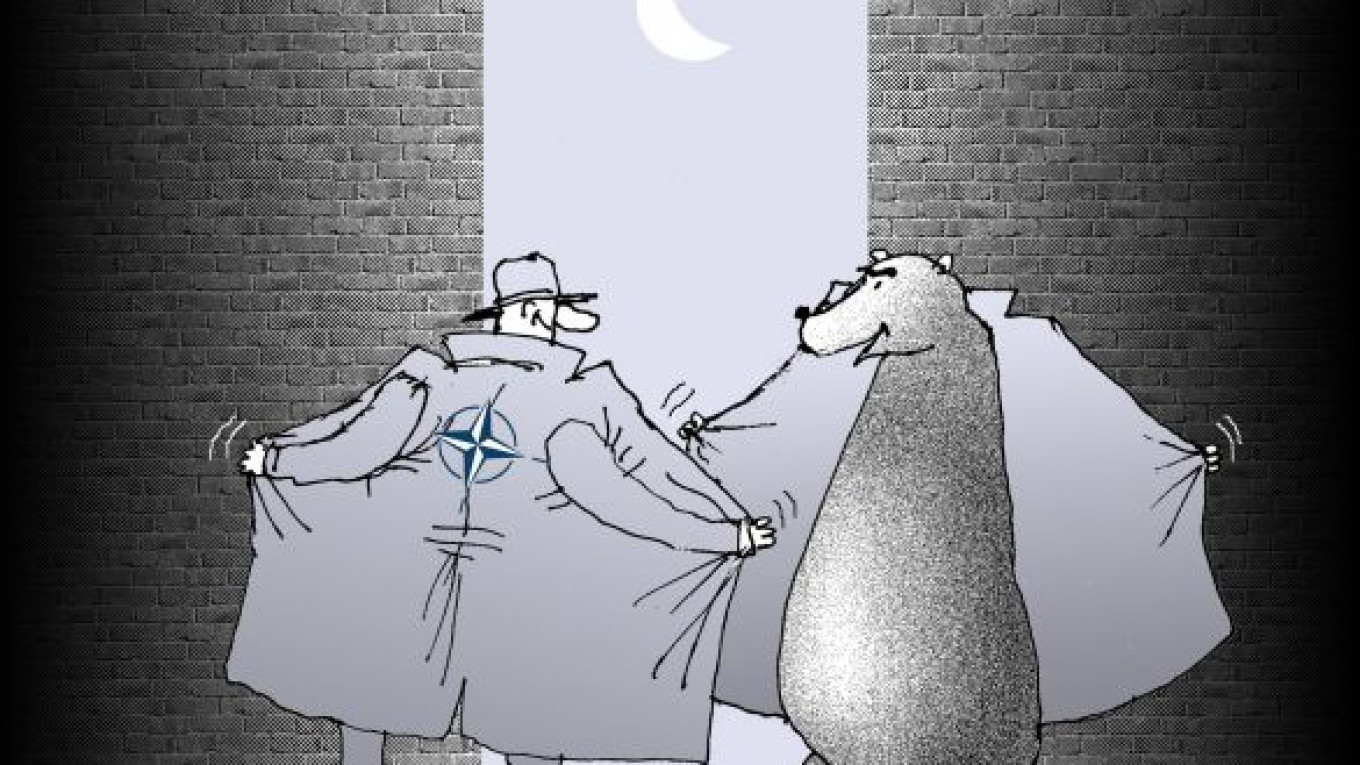Earlier this year, a group led by former U.S. Secretary of State Madeleine Albright, which included myself, issued a report on a new strategic concept called “NATO 2020.” The report recommended that NATO open its doors to new members while seeking a more constructive relationship with Russia. We outlined a dual strategy of reassuring the NATO allies that their interests would be defended while engaging with the Kremlin in a manner consistent with the 1997 NATO-Russia Founding Act and the 2002 Rome Declaration on the NATO-Russian relationship.
NATO needs Russia, and Russia needs NATO. The U.S. shift away from unilateralism has restored the importance of multilateral security institutions while giving NATO the chance to establish new partnerships with the European Union and Russia. In February, U.S. Secretary of State Hillary Clinton told the alliance’s Strategic Concept seminar in Washington that, “while Russia faces challenges to its security, NATO is not among them. We want a cooperative NATO-Russian relationship that produces concrete results and draws NATO and Russia closer together.”
Visiting Moscow that month, our NATO expert group sought to promote a rethinking of mutual perceptions. The main problem in the NATO-Russian relationship is not a lack of institutions, documents or procedures, but a lack of transparency, confidence and mutual trust. U.S. security analyst Charles Kupchan raised a pertinent question when he asked whether Russia should eventually join the alliance, pointing out that the settlements concluded after the Napoleonic wars and World War II show that alliances between former adversaries can be critical to the consolidation of great-power peace.
In other words, NATO’s strategy toward Russia must be guided by a spirit of inclusiveness. But such a strategy requires that Russia clearly demonstrate its political will to cooperate with NATO. Russia must make a choice.
In weighing that choice, Russia must not cling to Cold War rhetoric. The military doctrine that it unveiled in February this year lists both internal and external threats, but its primary emphasis was on portraying the United States and NATO as a danger. Whether the doctrine’s authors really believe that NATO poses a threat to Russia is not clear, as the country has not had such peaceable neighbors on its Western borders for more than 300 years.
Russia and NATO must jointly develop a new security agenda and a more cooperative methodology based on common working groups and joint papers. The old way of negotiating — via proposals and counterproposals with Russia and NATO perceiving each other as adversaries — should be abandoned. The kind of approach that we need is exemplified by the work of the Euro-Atlantic Security Initiative, which is co-chaired by former U.S. Senator Sam Nunn, former Foreign Minister Igor Ivanov and German diplomat Wolfgang Ischinger.
German Chancellor Angela Merkel recently urged that all parties involved focus more on practical steps. That means that we must think about how to broaden the application of our commitments to reciprocal transparency to all military forces in Europe — including conventional and nuclear forces, and missile defense installations. The time is ripe to again explore limitations on conventional forces and to adjust them to current rather than past needs.
We must also redefine common threats, and the common security agenda of confidence building and transparency must be based on the indivisibility of security in Europe and the trans-Atlantic area as a whole, including respect for sovereignty and territorial integrity — not just for alliance members, but for all countries that belong to the broader trans-Atlantic security community.
The interdependence of all states — large or small, weak or powerful, democratic or authoritarian — has become the organizing principle of today’s international security system. But interdependence does not in itself ensure control of the way relations develop between states, much less developments within them.
The tasks confronting NATO require redefining the essence of trans-Atlantic relations to answer some fundamental questions. What role should the alliance play in the future? Should it undergo further simultaneous transformation and enlargement? What kind of relations should NATO have with its partners?
The Albright report tries to address these questions in a balanced way. It endorses policies that accurately capture the relationship between “out of area operations” and members’ commitment to their mutual self-defense under Article 5 of the North Atlantic Treaty. It further rightly suggests that NATO’s strategic political and military objectives could be achieved jointly with Russia through greater stability, mutual transparency, predictability and arms reduction verified by nonproliferation and arms control agreements.
The revived importance of multilateral security institutions is creating a new climate and new prospects for a security system that can meet the needs of the 21st century. Last weekend’s NATO summit in Lisbon and the upcoming Organization for Security and Cooperation in Europe summit in Astana on Dec. 1-2 offer a unique opportunity to move the Euro-Atlantic alliance and Russia toward an inclusive, cooperative and effective security community.
Adam Daniel Rotfeld is former foreign minister of Poland. © Project Syndicate
A Message from The Moscow Times:
Dear readers,
We are facing unprecedented challenges. Russia's Prosecutor General's Office has designated The Moscow Times as an "undesirable" organization, criminalizing our work and putting our staff at risk of prosecution. This follows our earlier unjust labeling as a "foreign agent."
These actions are direct attempts to silence independent journalism in Russia. The authorities claim our work "discredits the decisions of the Russian leadership." We see things differently: we strive to provide accurate, unbiased reporting on Russia.
We, the journalists of The Moscow Times, refuse to be silenced. But to continue our work, we need your help.
Your support, no matter how small, makes a world of difference. If you can, please support us monthly starting from just $2. It's quick to set up, and every contribution makes a significant impact.
By supporting The Moscow Times, you're defending open, independent journalism in the face of repression. Thank you for standing with us.
Remind me later.






